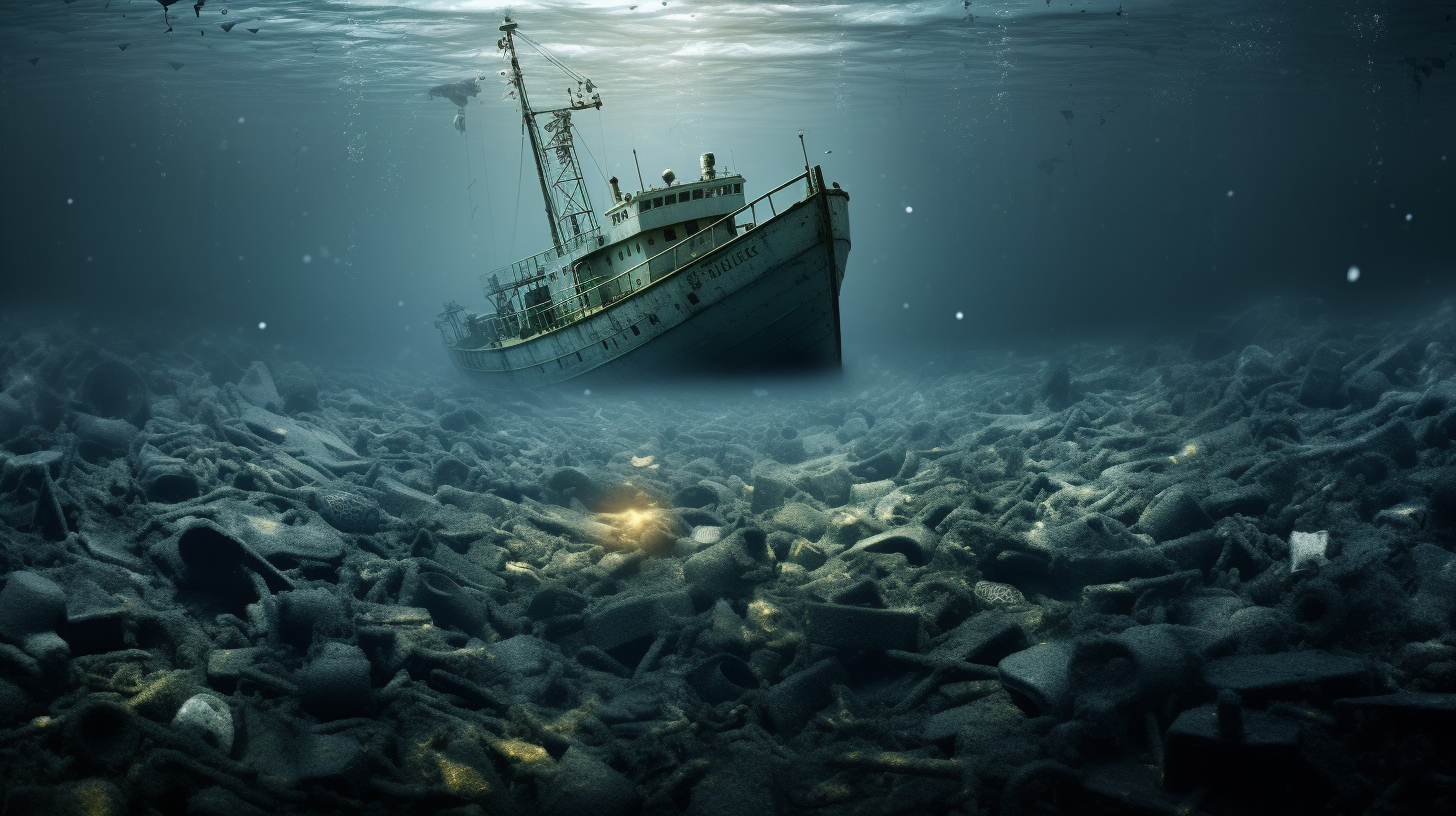In the chilling sequel to the soundscape of our oceans’ demise, we delve deeper into the abyss that now defines the underbelly of Earth’s aquatic grandeur. Welcome to a world of silence, a realm where the lively symphony of marine life has been hushed to nothingness. Ocean Deafness – a foreboding echo of our environmental apathy, throbbing through the water columns and into the heart of our conscience.
Once teeming with a diverse melody of creatures, the ocean now lies in an ‘acoustic void.’ This is a tale of how our once vibrant underwater concert halls, filled with the chatter of dolphins, the songs of whales, and the orchestra of reef critters, have turned into submerged catacombs of silence. The implications are harrowing and whisper caution into the narrative of our time.
The spectral silence now haunting our seas is more than an eerie reality; it’s a poison spreading through the very veins of ocean ecosystems. With it comes the imminent loss of species unable to survive in a world devoid of sonic cues. Predators and prey, in a dance as ancient as time, now falter and stumble. The complex language of survival through sound has been abruptly muted, leaving behind a generation of marine denizens lost in translation, quite literally.
Scientists have a term for it – ‘sonic defaunation.’ It’s akin to lifting the needle from the grooves of a record, the music abruptly ending, leaving only the sounds of our destructive tendencies scratching in the background. The symphony of life is fading as coral reefs, nurseries for a multitude of marine life, stand solemnly in blanched ruins. The culprits? A trio of disasters: rampant pollution, ruthless overfishing, and the iron fist of climate change.
Consider the whale’s song, a sound that can travel for hundreds of miles underwater. These ebbing notes are integral to communication, breeding, and even hunting. As these majestic creatures find fewer kin, their songs wane; their numbers dwindle. With them, the haunting melody of the deep waters hush, and the ocean’s narrative changes.
Similarly, the ‘clicks’ and ‘pops’ of smaller marine life, once the percussion section of the deep, have stuttered into terrifying hush. Fish schools are scattered or null, unable to relay the messages that kept their choreographed motion vibrant and alive. The reef’s rhythm is broken, and with it, the life it supported.
Such changes have consequences upward and outward, a silent signal of distress pulsing to the surface that we, too, are in peril. Let us not forget, the ocean feeds and nourishes civilizations, buffers the harshness of climate change, and breathes life into our planet. A silent ocean is an omen of human folly, an unsettling quiet that must be acknowledged.
We stand now on the precipice of an era where the only echoes are those of our environmental hubris. The real question we face is not whether we can hear the silence, but whether we choose to listen to its warning. It is a relentless, deafening stillness, akin to a scream into the void, echoing forward through the corridors of time as a stark note of inaction.
As certain as the tide, the reality is inescapable – our oceans bear the imprint of our neglect. And while scant dwellers of the deep spiral into the abyss with every muted heartbeat, the roar of inaction drowns out their final lament. Is there beauty in this silent devastation? Here, our narrative becomes a paradox—mourning the loss, yet finding a macabre curiosity in the profound quiet that is its consequence.
The silent depths below call out to us, not with sounds but with absence. They beckon us to change course before this silence seals our shared fate. Ocean Deafness may well be the dirge of the natural world, but it’s our hands that conduct the unheard orchestra, and it is our steps that must march to a different beat if hope ever to resound in these deep blue spaces again.
